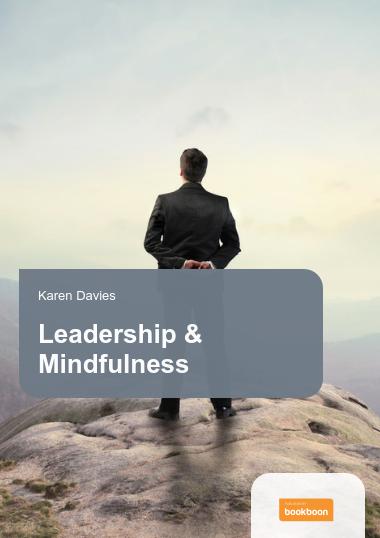Three approaches to mindful leadership

A mindful approach to leadership is very effective for a successful manager in the modern business world. The idea of what a leader looks like has heavily altered from the authoritarian, controlling manager who sits in an office behind a glass wall we once imagined. Leaders today inspire, motivate, manage and lead by example.
Mindful leadership is an opportunity for leaders to explore a new way of doing business in a cut-throat environment that no longer dishonours our integrity and helps us create a greater life balance. Mindful leadership is a modern art form. Let’s take a look at what this art looks and sounds like in the real world.
A mindful approach to leadership starts with you
Effective leadership must start from within. It is only with a strong sense of self-awareness, understanding of our own beliefs on leadership, management philosophy, and business values coupled with a huge dose of self-respect that we can really begin to master helping others excel.
With self-awareness comes the ability to self-regulate and be authentic which is exactly what we, as leaders, want our team members to be doing. How can we possibly look to lead others, when we are unable to develop our own self-discipline? Without self-awareness, we simply become managers, deluded by external motivation, focused on getting a job done, regardless of the emotional intelligence behind it. An effective leader is able to fully appreciate those around them through their own self-value, and with this comes respect and relationship building, which are core strengths in today’s business.
When we recognise the opportunity to learn about ourselves more intrinsically, we are then well on the path to a more mindful leadership style.
Here are three mindfulness approaches that will enhance your leadership effectiveness.
A mindful approach to relationships
 Modern management models often reference the importance of IQ (Intelligence Quotient). Yet it is EQ (Emotional Quotient) that really matters. How clever or intellectual we are does not give us the ability to build strong interpersonal relationships. All the qualifications in the world do not make a good ‘people person’ or help us navigate interpersonal conflict. A manager who focuses on their own EQ has the advantage of a developed empathy towards others and their situations thus developing stronger relationships. Relationships can be
Modern management models often reference the importance of IQ (Intelligence Quotient). Yet it is EQ (Emotional Quotient) that really matters. How clever or intellectual we are does not give us the ability to build strong interpersonal relationships. All the qualifications in the world do not make a good ‘people person’ or help us navigate interpersonal conflict. A manager who focuses on their own EQ has the advantage of a developed empathy towards others and their situations thus developing stronger relationships. Relationships can be
the trickiest interactions to navigate in a leadership context and our ability to be sensitive to other’s needs and reactions is paramount for an all-round high performing team. When the mindful leader takes this empathetic approach towards managing their employees, it builds and strengthens their relationships, from the inside-out.
A mindful approach to stress
 The fact of the matter is that stress, whether we like it or not, is a common feature in all of our lives. Finding a way of identifying when it strikes, what triggers it and, more importantly, what is happening to create it in the first place, are vital strategies for the successful leader, if we are not to let stress define us. Stress is primal and is rarely something we consciously choose to engage with. So when we can recognise our physical symptoms and practice a moment of mindfulness, we initiate a healthier response that puts us firmly back in charge.
The fact of the matter is that stress, whether we like it or not, is a common feature in all of our lives. Finding a way of identifying when it strikes, what triggers it and, more importantly, what is happening to create it in the first place, are vital strategies for the successful leader, if we are not to let stress define us. Stress is primal and is rarely something we consciously choose to engage with. So when we can recognise our physical symptoms and practice a moment of mindfulness, we initiate a healthier response that puts us firmly back in charge.
This awareness and control not only make us healthier individuals but also has the potential for changing the mood we unconsciously present to others. This has a huge impact on our leadership effectiveness – because just like animals – people pick up subtle cues about how we are feeling, irrespective of the behaviour we are conveying.
In moments of stress try to stop what you are doing and identify your stressor, think about why you are experiencing stress in this moment, and choose what your next step will be.
A mindful approach to conflict
 The principle of mindfulness is about ‘seeing things just the way they are’ and not having them coloured by our prejudice, beliefs and dislikes. Although, when we are in the heart of a conflict, our mindfulness becomes incredibly challenged.
The principle of mindfulness is about ‘seeing things just the way they are’ and not having them coloured by our prejudice, beliefs and dislikes. Although, when we are in the heart of a conflict, our mindfulness becomes incredibly challenged.
Being part of a conflict often promotes our fear and insecurity and any hope of being in the moment and clear thinking becomes a distant hope. We find ourselves caught up in a swarm of emotion, overwhelmed by the noise of our internal dialogue and consumed by knee-jerk behaviour released before we have had the time to think things through. Then, in the aftermath of the conflict, we recoil in turmoil, regret or guilt as we try to mop up the wreckage. The solution is to be aware of why this occurs.
When we learn to become more aware of our reactions to situations, we put ourselves in a stronger position to interrupt our habits. When looking specifically at conflict, mindfulness means becoming aware of why we react the way we do and allowing us to recognise what might be going on with both ourselves and others involved in conflict.




